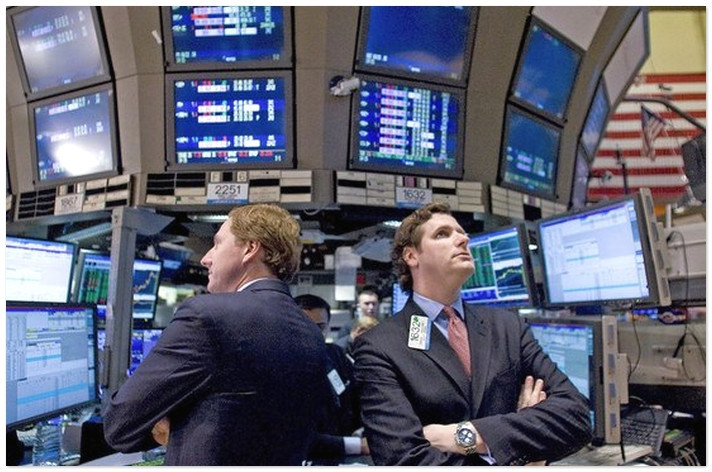
The US stock exchanges underwent a contraction on Tuesday. The major stock indexes showed a pullback from their historical maximum values, which they managed to reach the day before.
The Dow Jones Industrial Average fell 0.22% or 68.3 points. Its current level was 30,335. 67 points.
The S&P 500 index fell similarly by 0.22% or 8.32 points, which moved it to the area of 3,727. 04 points.
The NASDAQ Composite index lost 0.38% or 49.2 points. Its current level began to consolidate at 12,850. 22 points.
According to the latest data, a bill increasing direct payments to American citizens as aid against the background of the impact of coronavirus infection was blocked by the Republican majority leader in the Senate. This was a completely predictable decision, which analysts had warned about in advance. On Sunday, US President Donald Trump signed the draft budget for the year 2021 with the condition that the amount of payments will be revised from $600 to $2,000. However, after a positive vote in the House of Representatives, the bill again faced global problems that will most likely not be resolved quickly.
In addition, there is an active discussion on the issue of extending the program to support small and medium-sized businesses in the country. On Tuesday, the Department of Treasury and the Federal Reserve have already decided to extend it until January 8, 2021. The previous term of the program ended on December 31, 2020. Of course, this measure slightly improved the mood of market participants, but this is not enough for sustained growth to continue.
The main wave of positive news came from the signing of the budget for 2021, which took place last Sunday. This event has also almost exhausted itself and can no longer provide significant support to the markets, even though the budget payments include a package of assistance totaling $900 billion.
Note that under the influence of certain factors, which, in particular, include mass vaccination, ratification of fiscal incentives, soft monetary policy, the stock market is unlikely to lose hope for the future. Investors have no great reason to be nervous, so a global reduction should not be expected. Nevertheless, a minor negative correction is necessary. But don't take it too seriously.
One of the most problematic areas is still the deteriorating epidemiological situation in the United States. The increase in new cases of infection is recorded every day, and its pace is constantly increasing, which makes it doubtful that the economy will be able to move to a sustainable recovery in the near future. Over the past week alone, more than 184,000 new coronavirus infections have been detected in America every day.
Meanwhile, European stock exchanges did not record any significant dynamics on Wednesday morning. The major stock indexes are in no hurry to change and show almost no significant movement. First of all, market participants are trying to assess the situation around the spread of coronavirus infection, including a new, more dangerous strain detected in the UK.
Another important development was the approval of another COVID-19 vaccine developed by AstraZeneca. The UK plans to start using it early next month.
In addition, the signing of a post-Brexit trade agreement between Brussels and London becomes an exciting topic. The main agreements have been reached, and three documents were already ratified on Tuesday.
The general index of large enterprises of the European region STOXX Europe 600 gained 0.2% and moved to the level of 402.4 points.
The UK FTSE 100 index gained 0.19%. France's CAC 40 index rose 0.11%. Italy's FTSE MIB index added 0.15%. Germany's DAX index slipped slightly by 0.07%. Spain's IBEX 35 index followed suit and fell 0.04%.





















